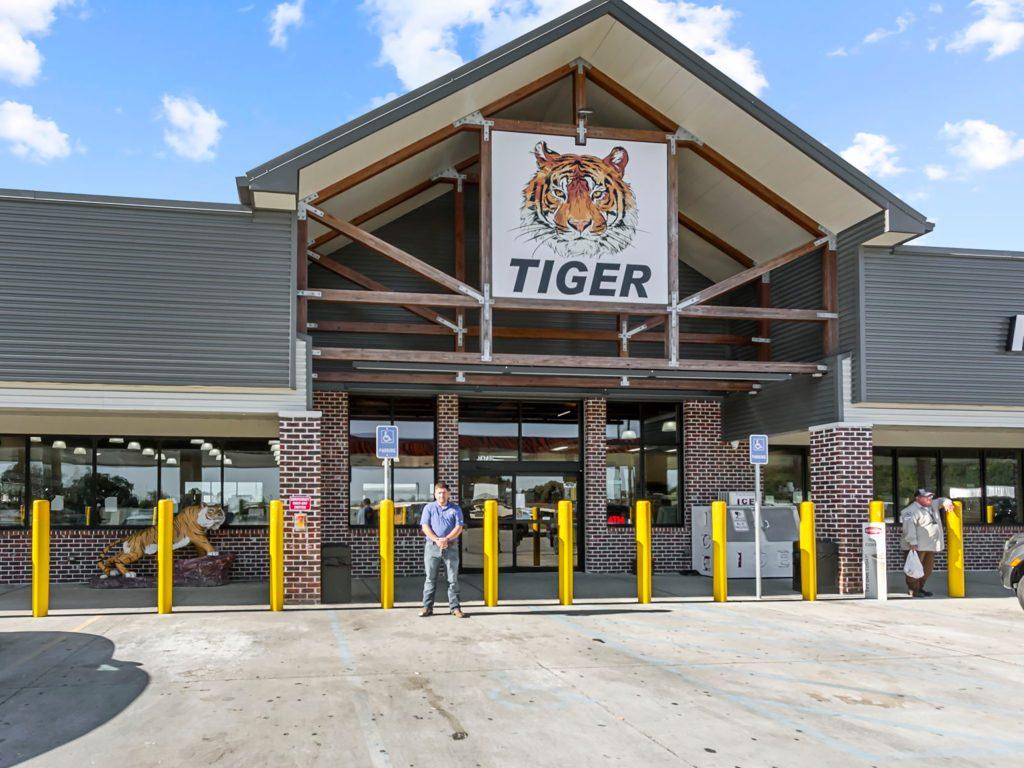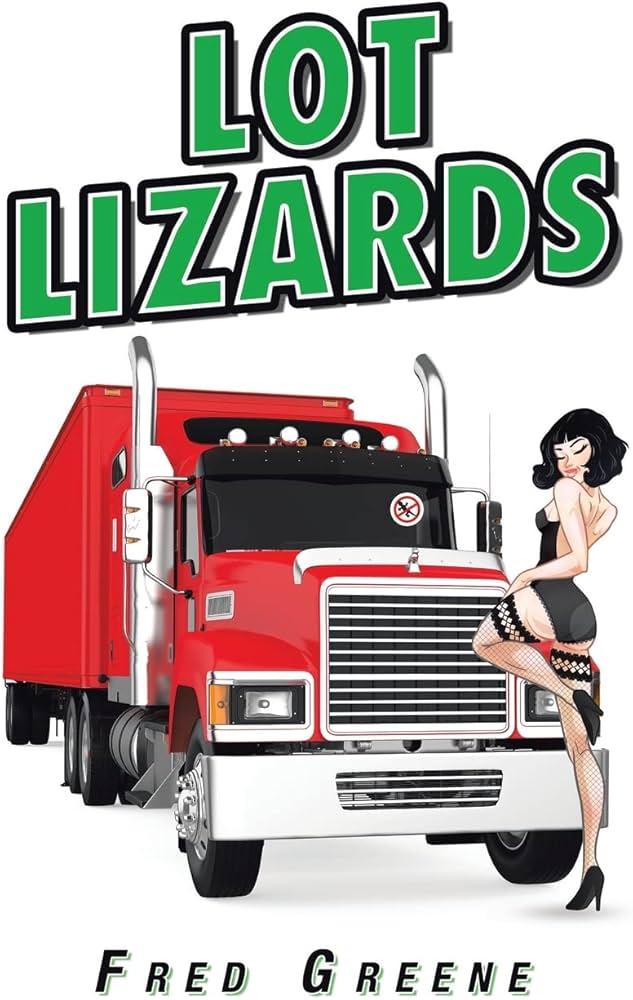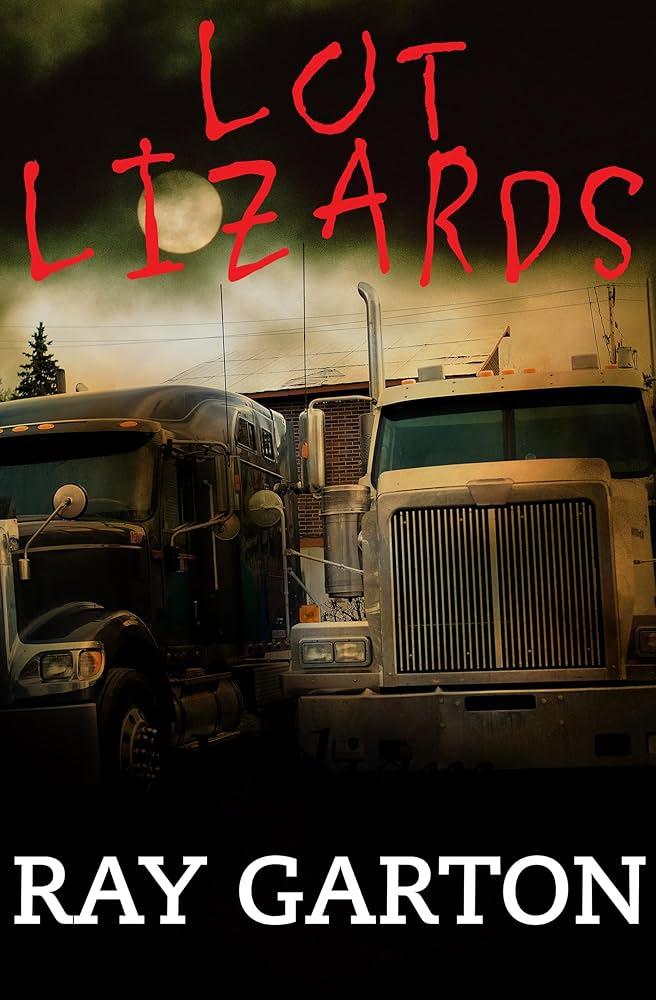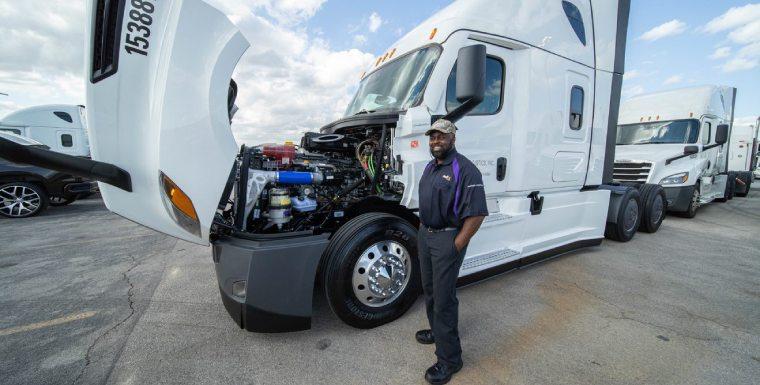Why Are They Called Lot Lizards?
Welcome to the open road, where the hum of truck engines and the flicker of neon lights create a unique tapestry of life at the heart of America’s highways. As you traverse through countless rest stops and truck stops, you might have overheard a curious term: “lot lizards.” This colorful phrase, often whispered among drivers and shrouded in the mystique of the trucking culture, refers to a group of individuals who make their living in the parking lots of these bustling spots. But why are they called lot lizards? Dive with us into the intriguing origins and layered meanings behind this term, exploring the stories of resilience, survival, and the complex dynamics that unfold on the asphalt canvases of our nation’s highways. Buckle up, because we’re about to embark on a journey that reveals the truth behind this enigmatic label.
Table of Contents
- The Origins of the Term Lot Lizard Uncovered
- Exploring the Life and Work of Lot Lizards
- The Economic Factors Behind Lot Lizard Culture
- Understanding the Risks and Realities Faced by Lot Lizards
- Support Systems and Resources for Vulnerable Individuals
- How Trucking Communities Can Foster Empathy and Change
- Q&A
- To Wrap It Up
The Origins of the Term Lot Lizard Uncovered
The term “lot lizard” evokes a plethora of images and connotations, both playful and serious. To decipher why they are called lot lizards, one must delve into the unique intersection of trucking culture and transient lifestyles. Originally, this slang term emerged within truck stop communities in the United States, where individuals—often sex workers—would frequent the parking lots to solicit clients. The name likely draws imagery from the way these women “lurked” around the expansive truck lots, akin to how a lizard might stealthily navigate its environment. The association with “lizard” may also refer to the notion of being somewhat detached from mainstream society, blending in as they traverse the fringes of the highway culture.
Furthermore, examining the societal implications behind why they are called lot lizards reveals a complex tapestry of economic necessity and personal choice. Many individuals engaged in this line of work are motivated by immediate financial needs, leading them to frequent these truck stop lots. Statistics from various studies highlight the impact of this lifestyle on mental health and community perceptions. However, inquiries into their lives often lead back to the core question: why are they called lot lizards? This curiosity reflects societal views on gender, mobility, and economics, further emphasizing the need for respectful and nuanced conversations around these topics. To learn more about the societal implications and origins, check out this article for an insightful look.
| Description | Relevance |
|---|---|
| First Usage of “Lot Lizard” | 1970s Truck Stops |
| Common Misconceptions | Judgment vs. Reality |
| Societal Context | Economic Pressures |
| Media Representation | Documentaries & Articles |
As we navigate conversations around terms like “lot lizard,” it’s important to consider the underlying factors contributing to this phenomenon. Why are they called lot lizards? The answer lies not just in the semantics but within a broader narrative about the lives affected by economic mobility. Ongoing discussions in social science literature focus on the experiences of these individuals, encouraging us to approach the issue through a compassionate lens. Diving deeper into the social dynamics at play can lead to a better understanding, as outlined in this New York Times article that explores this world.
Exploring the Life and Work of Lot Lizards
To understand why they are called lot lizards, one must first look at the environment these individuals inhabit. Typically found in truck stops and rest areas, they offer companionship and services to long-haul truck drivers. The term “lot lizard” itself suggests a creature that is permanently associated with parking lots, perfectly capturing both the location and lifestyle tied to their work. The moniker has become common vernacular, signifying not just their physical presence in these lots, but also the transient nature of their lifestyle.
As we delve deeper into understanding why they are called lot lizards, it becomes evident that societal perceptions play a significant role. Many view them through a lens of stigma, often reducing their complex lives to stereotypes and cliches. However, realizing the realities these individuals face can offer a more nuanced perspective. Factors such as limited economic opportunities and the need for survival drive many to this lifestyle. Here are a few reasons supporting why they are called lot lizards:
- Location: Predominantly found in parking lots.
- Behavior: Just as lizards are often seen basking in sun, lot lizards are frequently associated with idle waiting and interaction.
- Transience: Their lifestyle is fleeting, similar to how a lizard might dart away at any moment.
| Aspect | Insight |
|---|---|
| Average Income | $20-$100 per day |
| Common Locations | Truck Stops, Rest Areas |
| Challenges | Stigma, Safety Risks |
In uncovering the history behind why they are called lot lizards, one can explore the evolution of language and societal attitudes towards marginalized communities. For further understanding, you can read about the socioeconomic factors involved in this in-depth article with insights. It brings to light the myriad of stories and circumstances encountered by individuals operating within this unique sphere. Ultimately, reflecting on why they are called lot lizards isn’t just an exploration of language; it’s an invitation to reconsider our perspectives on those who live on the margins.
The Economic Factors Behind Lot Lizard Culture
The phenomenon of lot lizard culture is deeply intertwined with economic factors that shape the realities of many marginalized individuals. In understanding why they are called lot lizards, it’s essential to consider the circumstances that lead individuals into such vulnerable positions. Many of these individuals face severe economic hardships, such as unemployment or underemployment, driving them to seek alternative methods of survival. With the costs of living continuously rising, traditional job opportunities become increasingly scarce, pushing some into the shadows of the trucking industry’s parking lots, where the term “lot lizards” originated.
This culture persists largely due to the unchecked dynamics of supply and demand. Truck stops represent a unique convergence of transient workers with disposable income, and individuals offering intimate services, often without any regulation or oversight. Various societal factors can lead to such conditions, including:
- High rates of poverty in certain regions.
- Lack of access to education or job-training programs.
- Substance abuse issues contributing to a cycle of poverty.
Understanding why they are called lot lizards extends into recognizing these harsh realities and the systemic issues that contribute to their existence. As we explore this topic further, it’s crucial to engage with resources that highlight the broader economic landscape, such as The Economist and Brookings Institution.
Understanding the Risks and Realities Faced by Lot Lizards
The term “lot lizards” refers to individuals who solicit clients at truck stops or rest areas, often engaging in sex work. Understanding why they are called “lot lizards” requires a look into the culture surrounding these areas, where large trucks park in vast lots. Here, drivers frequently encounter these individuals who navigate through the shadows of the truck stop scene. The reasons for their presence can vary, but commonly include economic hardship, personal choices, or a search for immediate financial relief. The term captures the essence of their marginalized existence and highlights how society views those who take up such risky ventures.
It’s essential to consider the risks and realities faced by these individuals. Lot lizards often contend with:
- Health Risks: The potential for sexually transmitted infections and other health concerns.
- Legal Implications: The risk of arrest and criminal charges related to solicitation.
- Safety Hazards: Encounters with dangerous individuals, including violence.
- Stigma: Societal judgment which affects their ability to reintegrate into society.
These factors not only shape their daily lives but also raise important questions about support systems and resources available to them.
To further delve into the world of lot lizards, one should note that many individuals partake in this line of work out of desperation rather than choice. It may appear that they are living in a world of autonomy, but the nuanced reasons behind their actions reveal a more complex reality. Analyzing the narratives and social conditions can shed light on the truth of why they are called lot lizards. The societal response can also play a crucial role in shaping their experiences. Initiatives aimed at providing resources and support to marginalized groups could help redefine these interactions in truck stop lots.
Further, understanding these realities can be pivotal in dismantling the stigmas that often surround the term “lot lizards.” With a better grasp of their lives, we can foster more empathetic dialogues and highlight the need for transformation in treatment and support within the community. The conversation about why they are called lot lizards isn’t just about the term itself but about addressing the human stories that lie beneath the surface, often invisible to passersby in the lots.
To see more perspectives on the subject, check out this insightful NBC News article that dives deeper into the lives of these individuals and their challenges in society.
Support Systems and Resources for Vulnerable Individuals
Support systems for vulnerable individuals, often referred to in troubling contexts such as the term “lot lizards,” are crucial for addressing the needs of those who find themselves in precarious situations. Many of these individuals are engaged in marginalized communities within urban and rural settings where they may lack access to basic resources. Organizations and local councils can provide vital assistance through various means, including shelter, health services, and counseling. Effective support networks may include:
- Aftercare Programs: Focusing on long-term recovery and stability.
- Emergency Relief Services: Offering immediate assistance with food, clothing, and safe shelter.
- Educational Opportunities: Helping individuals gain skills for better employment prospects.
Understanding “why are they called lot lizards” often leads to a deeper look at societal issues, including exploitation and the need for resources to combat it. Specifically, these vulnerable individuals often navigate challenging environments where they might not only engage in survival tactics but also face criminalization rather than support. Community initiatives work to address these complex issues through engagement and empathy. Consider the following table outlining effective interventions:
| Intervention | Outcome |
|---|---|
| Outreach Programs | Increased awareness and support for identifying “lot lizards.” |
| Job Training | Empowerment through skills to exit vulnerable situations. |
| Health Services | Improved well-being and mental health care access. |
By understanding “why are they called lot lizards,” community members can cultivate empathetic approaches to supporting these individuals rather than perpetuating stigmas. For more insights on community support strategies, visit the National Center for Biotechnology Information and explore relevant concepts that can help foster positive change.
It’s essential to advocate for vulnerable individuals by facilitating an environment where their stories are understood, rather than reduced to labels. Learn about effective advocacy strategies at Health and Human Rights Journal, which discusses the significance of dismantling stereotypes surrounding individuals classified as “lot lizards.” Through education and community resources, we can work toward more supportive frameworks for all.
How Trucking Communities Can Foster Empathy and Change
Exploring the concept behind the term “lot lizards” sheds light on the misconceptions surrounding this often-misunderstood community. Many people might associate the term solely with negative connotations, but by fostering empathy, trucking communities can begin to understand the complex realities faced by these individuals. The reasons why they are called lot lizards are intertwined with socioeconomic factors, lack of opportunities, and personal choices that lead them to seek income from truck stops. By engaging in open conversations within trucking forums or community meetings, drivers can gain insights that challenge stereotypes and promote a culture of understanding.
Recognition of the humanity in everyone—including those labeled as “lot lizards”—is essential for community change. Truckers can advocate for better support systems, such as access to social services or bridge-building initiatives that focus on addressing the root causes of why they are called lot lizards. This can include providing education on health resources, financial literacy, and job training that empowers individuals to transition towards more stable livelihoods. Some active steps could include:
- Organizing workshops with local nonprofits to educate about economic opportunities.
- Creating networks where truckers can mentor individuals seeking alternatives to work as “lot lizards.”
- Partnering with organizations that specialize in street outreach and rehabilitation.
| Challenges Faced | Community Solutions |
|---|---|
| Stigma and Stereotyping | Awareness Campaigns |
| Lack of Support Services | Resource Access Points |
| Restricted Opportunities | Job Training Programs |
It’s vital to remember that the phrase “why are they called lot lizards” isn’t just a question about terminology—it’s a call to understand the broader narrative. Engaging with organizations such as National Trucking Association or leveraging resources from Truckers Against Trafficking can provide valuable insights into how trucking communities can create a more compassionate environment. Through empathy and actionable change, the stigma associated with being labeled as a “lot lizard” can transform into a narrative of resilience and hope.
Q&A
Q&A: Why Are They Called Lot Lizards?
Q: What are “lot lizards”?
A: Ah, the intriguing term “lot lizards”! This colorful phrase refers to individuals, often women, who engage in sex work in truck stops and rest areas across highways. Their name is as unique as their world!
Q: So, where does the term come from?
A: The moniker “lot lizard” is believed to derive from the combination of “lot,” referring to the truck parking lots where they typically work, and “lizard,” a playful nod to their ability to navigate the rough terrain of the trucking industry. One might even say they’ve got the skills to blend into their surroundings, sort of like how lizards change colors!
Q: Is it just about the name, or is there more to these individuals?
A: There’s definitely more than just the catchy moniker! Lot lizards often have complex backgrounds and circumstances that lead them to this unconventional occupation. Many are seeking a way to survive or support families, sometimes facing significant challenges like addiction or a history of trauma. It’s essential to approach the subject with empathy and understanding.
Q: What’s life like for a lot lizard?
A: Life on the lots isn’t easy. These individuals navigate not only the challenges of their work but also face judgment and stigma from society at large. They’re often out at odd hours, waiting for truckers looking for companionship. It can be a lonely and dangerous job, not to mention physically demanding.
Q: Do lot lizards have any connections with truck drivers?
A: Indeed, they do! Many lot lizards develop relationships—some transactional, some more personal—with truck drivers. These interactions can be simple exchanges or lead to friendships that offer a brief respite from their challenging lives. However, it’s vital to remember that both parties can have very different perspectives on these encounters.
Q: Is the term “lot lizard” viewed positively or negatively?
A: Unfortunately, “lot lizard” often carries a negative connotation, reflecting shame and judgment. However, advocates for sex workers emphasize the need for compassion and respect. Challenging the stigma surrounding lot lizards is vital to understanding the broader issues of sex work, survival, and human rights.
Q: How can we support those in this line of work?
A: One powerful way to make a difference is to promote awareness and advocate for policy changes that protect the rights of sex workers. Supporting local organizations that provide resources, healthcare, and safe spaces for individuals involved in sex work can also be incredibly impactful. Remember, kindness and compassion can go a long way!
Q: Can we conclude with something lighthearted?
A: Absolutely! Next time you hear “lot lizard,” think about the stories and struggles behind the term. Maybe even envision them as modern-day chameleons, adapting to their environments in search of warmth and connection in a world that often leaves them out in the cold. 🌟
To Wrap It Up
As we wrap up our journey into the intriguing world of “lot lizards,” it’s clear that this unique term is steeped in the vibrant tapestry of life on the road. These individuals, often misunderstood, are part of a complex culture that thrives in the shadows of truck stops and rest areas — a universe where stories intersect just like the highways we travel. So, why are they called lot lizards? Well, the term paints a picture of resilience, resourcefulness, and the quest for connection in a world that often overlooks the nuances of human experience.
As we part ways, let’s take a moment to reflect on the rich narratives behind such terms. The next time you hear “lot lizards,” remember that it’s not just a label; it’s a glimpse into the lives of those navigating the highways we share. So, whether you’re a seasoned trucker or just passing through, keep your heart open and your mind curious. After all, every highway carries its own stories, just waiting to be discovered. Safe travels!











